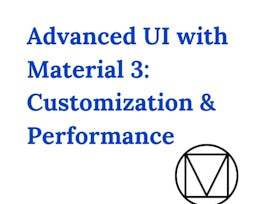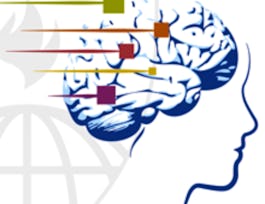This course aims to provide a succinct overview of the emerging discipline of Materials Informatics at the intersection of materials science, computational science, and information science. Attention is drawn to specific opportunities afforded by this new field in accelerating materials development and deployment efforts. A particular emphasis is placed on materials exhibiting hierarchical internal structures spanning multiple length/structure scales and the impediments involved in establishing invertible process-structure-property (PSP) linkages for these materials. More specifically, it is argued that modern data sciences (including advanced statistics, dimensionality reduction, and formulation of metamodels) and innovative cyberinfrastructure tools (including integration platforms, databases, and customized tools for enhancement of collaborations among cross-disciplinary team members) are likely to play a critical and pivotal role in addressing the above challenges.



(341 reviews)
Skills you'll gain
Details to know

Add to your LinkedIn profile
5 assignments
See how employees at top companies are mastering in-demand skills


Earn a career certificate
Add this credential to your LinkedIn profile, resume, or CV
Share it on social media and in your performance review

There are 6 modules in this course
What you should know before you start the course
What's included
6 readings
• Learn and appreciate historical paradigms of advanced materials development while emphasizing the critical need for new approaches that employ data sciences and informatics as the glue to connect computational simulation and experiments to speed up the processes of materials discovery and development. • Learn about the emergence of key national and international 21st century initiatives in accelerated materials discovery and development and how they are expected to bring about a disruptive transformation of new product capabilities and time to market.
What's included
9 videos1 reading1 assignment2 discussion prompts
• Understand property, structure and process spaces • Learn about Process-Structure-Property Linkages • Learn what does Materials Knowledge mean • Learn about a role of Data Science in Materials Knowledge System • Overview approaches and main components of Data Science • Learn about a new discipline - Materials Data Sciences
What's included
6 videos1 assignment
• Learn material structure and its digital representation • Learn how to calculate 2-point statistics • Learn how Principal Component Analysis can be used to reduce dimensionality • Understand Homogenization and Localization concepts
What's included
6 videos1 assignment
This module demonstrates a homogenization problem based on an example of two-phase composites
What's included
2 videos1 assignment
• Learn about materials innovation system and cyberinfrastructure • Review Materials Databases, e-collaboration platforms and code repositories • Learn why integrated workflows are needed • Define Metadata, Structured and Unstructured data • Learn about available services for e-collaborations
What's included
6 videos2 readings1 assignment2 discussion prompts
Instructor

Offered by
Recommended if you're interested in Chemistry

University of Maryland, College Park

Coursera Project Network

University of California, Irvine

Johns Hopkins University
Why people choose Coursera for their career




Learner reviews
Showing 3 of 341
341 reviews
- 5 stars
64.51%
- 4 stars
25.51%
- 3 stars
6.74%
- 2 stars
2.05%
- 1 star
1.17%

Open new doors with Coursera Plus
Unlimited access to 7,000+ world-class courses, hands-on projects, and job-ready certificate programs - all included in your subscription
Advance your career with an online degree
Earn a degree from world-class universities - 100% online
Join over 3,400 global companies that choose Coursera for Business
Upskill your employees to excel in the digital economy
Frequently asked questions
Access to lectures and assignments depends on your type of enrollment. If you take a course in audit mode, you will be able to see most course materials for free. To access graded assignments and to earn a Certificate, you will need to purchase the Certificate experience, during or after your audit. If you don't see the audit option:
The course may not offer an audit option. You can try a Free Trial instead, or apply for Financial Aid.
The course may offer 'Full Course, No Certificate' instead. This option lets you see all course materials, submit required assessments, and get a final grade. This also means that you will not be able to purchase a Certificate experience.
When you purchase a Certificate you get access to all course materials, including graded assignments. Upon completing the course, your electronic Certificate will be added to your Accomplishments page - from there, you can print your Certificate or add it to your LinkedIn profile. If you only want to read and view the course content, you can audit the course for free.
You will be eligible for a full refund until two weeks after your payment date, or (for courses that have just launched) until two weeks after the first session of the course begins, whichever is later. You cannot receive a refund once you’ve earned a Course Certificate, even if you complete the course within the two-week refund period. See our full refund policy.

